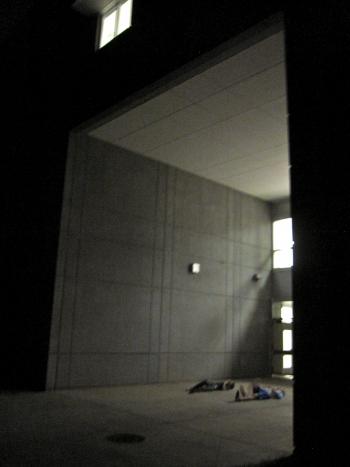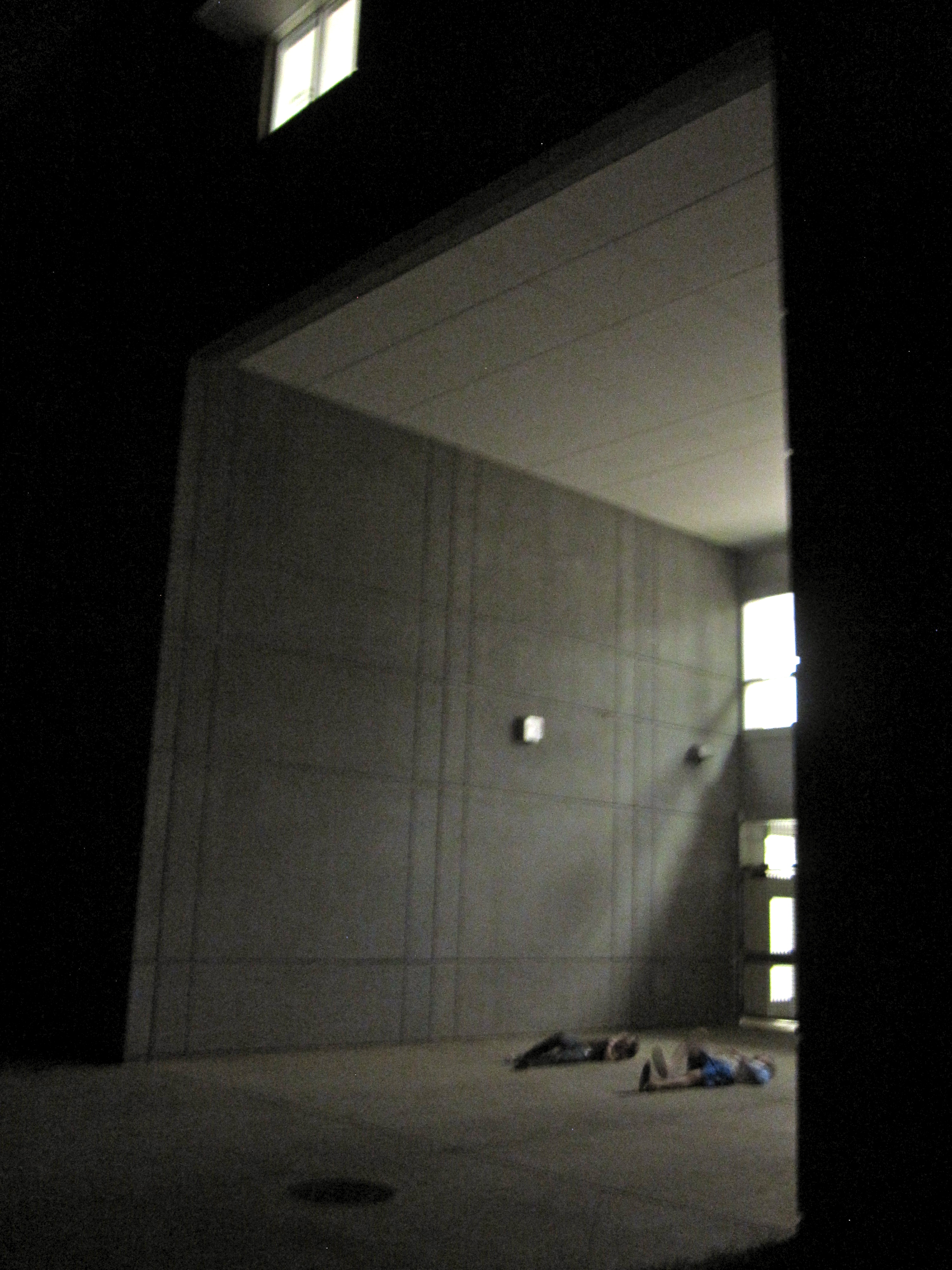Serendip is an independent site partnering with faculty at multiple colleges and universities around the world. Happy exploring!
ishin's blog

Exploring East Asian Identity Live Broadcast
Here's the introductory podcast. It's a more polished, expanded version of what you saw at the final presentation
We recorded our livepodcast but be warned: it's INCREDIBLY soft. I suggest you pump up the volume for it. It's shared in a google doc here (I need to sign up for podcast permission from itunes in order to get a more formal way to share things with everyone, so this will have to do for now)
Here's the script we had for monday's presentation:
INTRODUCTION
I’m Irene Shin ‘13
Chandrea Peng ‘15
Yiran Zhang ‘14
Irene: Over the past several weeks, the three of us have interviewed several students on this campus to get a better understanding of the following question: what is it like to identify as East Asian at Bryn Mawr?
As you heard in my own interview with Danielle for her final project, my own motivations for being a part of this project can be summed up as so: I consider the East Asian demographic as a sleeping giant of sorts: an integral part of Bryn Mawr’s landscape but not foregrounded in any conversation on campus.
Our final 360 project aims to 1) give that space that has yet to exist and 2) understand why East Asians have a tendency not to speak on this issue to begin with.

Memo#3
My memo discusses the importance of the latent periods of growth, and how things can grow unexpectedly underneath your nose!

The Japanese and Chinese Scholarship
Forewarning: this is going to be real piecemeal and not that comprehensive. Here's also Erin's post that talks a lot about two early east Asian students on campus.
As Erin points out, surprisingly enough, there is a deep-rooted history of East Asian, more specifically, Japanese, and then a short time later, Chinese students, on campus. To speak of the Japanese students first, in 1893, a Quaker woman named Mrs. Wistar Morris founded what was called the Japanese Scholarship program. I found an opening speech within the special collections archives that describes a little about the beginnings of this program:
"In 1893...Mrs. Wistar Morris...was a friend and believed in foreign missions which at that time the Quakers did not. So after speak about it in meetings for some time with not results she decided she better go herself which she did. Her husband accompanying her."

Labeling Clients and education
Just thoughts. Really incoherent thoughts:
I'm thinking about the "How Offenders Transform Their LIves" reading in a pedagogical frame. It's hard. Here these counselors are--trying to help out these "clients" by ways of telling them to "look inside themselves" to see whether or not they've "changed". But at the same time, these offenders want guidance--want people to give them a go and label that says that they're going to be okay or on the road to being delabeled. In other words, how do you guide people while still empowering them?
Quote:
"'Readiness' is clearly a complicated negotiation between clients and counselors. Clients are told that the change has to happen from within themselves, yet client self-declarations of 'being ready' are not enough to quality as evidence of success." (Shadd Maruna, Thomas P LeBel, Michelle Naples and Nick Mitchell)
Maybe my problem with their analysis is the issue that the counselors seem to be having in attempting to assist these inmates: Isn't it a problem that we're solely concerned with the labels being imposed onto the offenders? Sure, they're the ones who we are mainly concerned with, but to identify what titles they place on the counselors would 1) reveal what issues they may have with the process of being "readied" and 2) in a way, give them a place to actually label others/give them a place to become more confident in their own abilities.
This is a little too short. I'll come back to this.

WebEvent#3: First time podcast
Because I'm interested in making a series of podcasts for my final activism project, I made a podcast for my final webevent.
Attaching the script may actually be the best because it actually holds more content within it than the podcast itself (there way a lottt of editing involved).
Here's the script:
When I first started off with this podcast, I was going to speak about the difference between the stage directions “pause” and “silence” in the play Wating for Godot, but as you can tell, I had a little trouble trying articulate anything meaningful.
I’ve made a couple of recordings and youtube videos in the past, and I want to be able to say that you eventually get used to it—but I can only partially partake in that that claim.
To be sure, there are a couple of things on that list I’m used to: I’m no longer embarrassed by the way my voice sounds outside my own head, and I’m much more okay with making mistakes on the camera—after all, that’s what editing for.
But without fail, I still fall into the same trap that I think gets a lot of us: the one where you get caught up in each syllable you utter, the amount of air you take in through your lungs, and the weight of each word that leaves your lips. The trap of being overwhelming self-consciousness about your own vocal speech patterns.

Voice Paper II: recreating the prison space

When looking through the pictures together, one of the main themes we’ve noticed is the similarity between the physical spaces of prisons and schools. This is apparent when we compare Erin’s photos of her school to Chinese prisons, Johannah’s images of a school cafeteria space to a prison block, and the photos of Overbrook high school as well. To be sure, the feelings and connotations associated with these spaces are far from what we can call comfortable, positive, or perhaps even palpable. This is evident in their harsh fluorescent lights, the cramped living spaces, the bare, white washed walls, and more generally, the stark, unfriendly nature of these buildings. In other words, these places are designed to evoke bad feelings.
Because of this, I start to get a little worried about how people might approach the solving this problem. More specifically, I’m worried that people might think it’s appropriate to believe that the structure of these spaces are inherently evil and, by extension, believe that these spaces must be completely abandoned in order to address problems within these two institutional spaces. The reason why I worry is because I don’t believe a complete rejection of these institutional buildings and is necessarily fruitful, or even possible.

4Oct2012Vision4: Desire-based research and Vision's addiction concept
A couple of classes ago, we discussed the complications with making research based in desire. While we thought that desire-based was more beneficial/was the extra layer that damage-based research needed, using the diction choice of "desire" disturbed us a little bit. In other words, what Eve Tuck was trying to advocate (a more holistic approach to research, and not concentrating on only what wrong has been imposed onto a group) may not be best encompassed by the word desire, since it associates persons as always "wanting" something or addicted to something.
Visions, then, seems to be the end product of what worried us so much. By solely using the rhetoric of "desire" and "addictions" to address what problems the women may have, it seems to limit and test them in ways that could turn out to be more damaging than fruitful. Admittedly, I haven't read through the book yet, so I can't make a stance on how Haney sees this plays out, but so far, Visions and its practice of trying to channel desires to other "healthy" avenues seems to be awful in its own way. To have the women always in a space of complete transparency, allowing them to speak whatever they might to a peer in the hotseat--it's pretty brutal. I may be making connections that might not make sense in those post, but I'm worried.
To always think about people in terms of desire is not good.

I promise I'm not trying to cope out,
but I think this might still be coping out. Our assigned reading for tuesday directly plays into the paper I'm writing for Jody's class and I'd like to have the two of them "play together" here. Unfortauntely, that means I won't be able to turn this in on time. I'll share my paper online and then respond to it with the lens of the "Advetencia/Warning" reading.
Promisies. Promisies.





